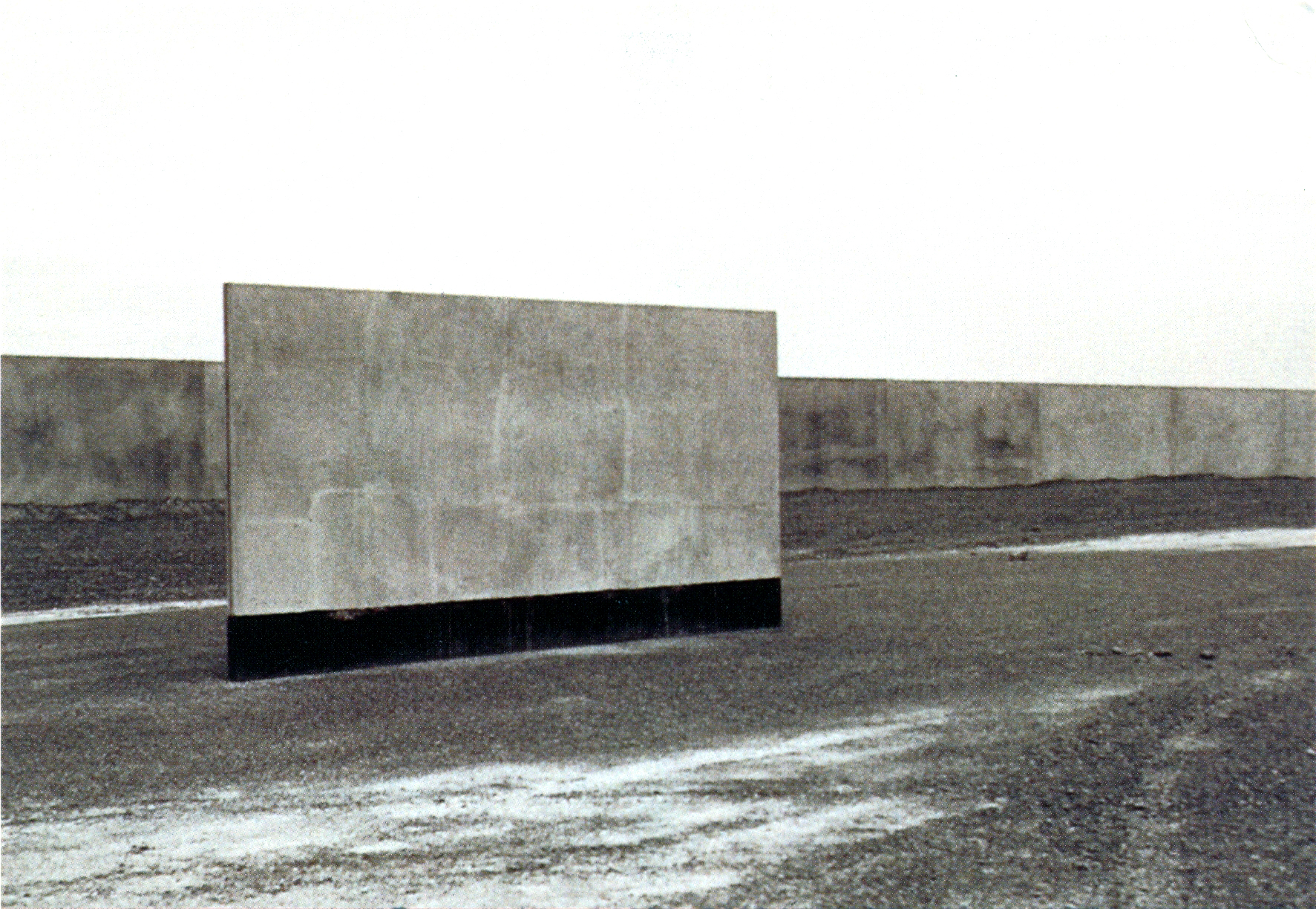
Wall, 2003
Mark Pilkington
Wall, 2003
photograph
search


Mark Pilkington
Wall, 2003
photograph
The settings in this series of photographs are devoid of the human form, yet are the consequence of human intervention much like a constructed theatre stage awaiting the actors' performance. We are coaxed into a contemplation that allows us to appreciate previously unnoticed or ignored elements of our built environment and their relationships within the image.
To the casual observer, these photographs appear to be in the genre of black and white photography and it is not until one is drawn into the mis-en-scene that a subtlety of codes of the image initiate a slow release of meaning. Photography, once an accessory to the sense of origin, posits a double inversion: the allure of the trace (of the world) and the trace of the allure (of the photograph).
On first impression, the viewer is aware of the everyday nature of the subject matter and the fact that the images are not specific to a particular area or culture: they are no longer set in "Arabia".
The construct of nation is interrogated from the points of spatial reference, as the distortion of idealized geographies and reinterpreted signs. They are a detail of "somewhere" appearing to have no identity. They are a record of a moment in time but also have an air of anticipation that suggests there is more, as they are not 'complete' narratives.
As documentation of the built environment, these images privilege neither monument nor landmark. The viewer is drawn in by either the use of perspective or out of a personal curiosity, salvaged in the deadpan prose of aporia. They could be paintings but they are photographs. Every detail is stili present. The hyperreal surface qualifies the neutrality. The politics of representing "the desert" as a place of difference, (empty), more so politicized through the empty metaphor, as a general non-anecdotal sign is left indeterminate. The aesthetic registration of the disinterest as inscribed in the local environ, is precisely equidistant to the 'interest' attached to its universal content. PL